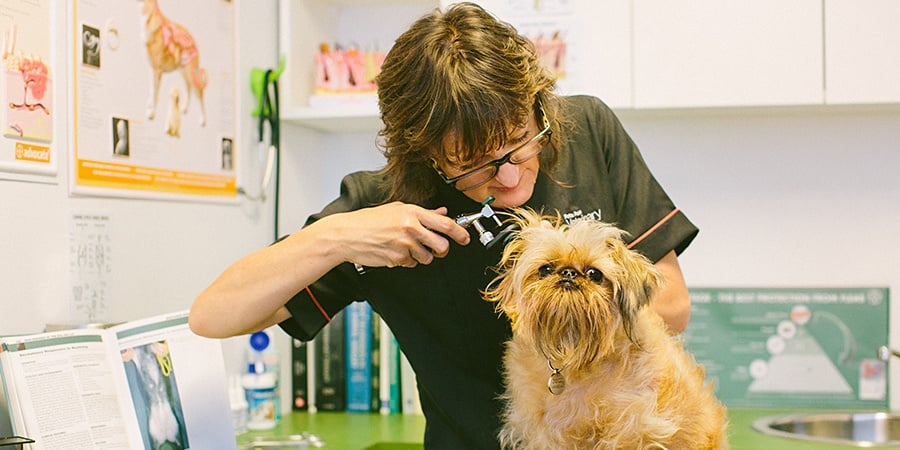
Allergies don’t affect just people—pets can get them too. The staff at Potts Point Veterinary Hospital are well qualified to treat any cat or dog skin care problems your pet might have. Cat and dog allergies fall into three main categories: environmental and inhalant allergy (atopy); biting insect allergy, usually flea allergy dermatitis (FAD); and food allergy.
Some pets become very itchy after contact with certain grasses and plants present in the garden & parks. The veterinarian will provide you with a plan & soothing treatments to resolve this chronic problem.
Environmental and inhalant allergy (atopy)
Atopy occurs when your pet breathes in pollen, moulds, dust mites, or animal dander. Environmental allergens can also affect the skin, causing irritation around the face, lower chest, belly, and paws, which can cause your pet to scratch and bite the affected area. If you believe your dog or cat has atopy, our vets will investigate your pet’s itching problem to rule out other causes, such as fleas and lice, bacterial and yeast infections, or food and contact allergies. There is no cure for atopy yet, but we can ease your pet’s discomfort by using medicated shampoos and conditioners, giving your animal medication to reduce the allergen’s effects, and suggesting preventative wear such as T-shirts and socks to keep your pet from scratching. Together, you and your vet decide when drugs are needed to make your pet feel better.
Flea Allergy Dermatitis (FAD)
“Flea bite hypersensitivity,” results from an allergic reaction to flea saliva. Like environmental allergens, FAD irritates the skin, causing dogs and cats to bite their backs, back legs, bellies, or tails, wherever the irritation occurs. This can lead to skin infections called “hot spots” in dogs and miliary dermatitis (lesions) in cats. In addition to examining your pet, our veterinarians at Potts Point Veterinary Hospital may order an intradermal skin test to rule out the other causes of itching. Prevention is the key to treating FAD, so our veterinarians recommend both insecticides and insect growth regulators for your pet and your home. To combat the itching, we may prescribe topical treatments or internal drugs.
Food Allergy
If your cat or dog is frequently itching, licking, chewing, or has diarrhoea and other digestive problems, then your pet might be experiencing an allergic reaction to his or her food. Be sure to call us for a consultation. Our veterinarians may put your pet on a hypoallergenic (exclusion) diet for a minimum of 8–12 weeks to alleviate the symptoms, and then slowly add food to determine which food is causing the allergic reaction. Once the ingredient causing the allergy is determined, our vets instruct you on how to carefully monitor your pet’s allergy-free diet.
The veterinarians and staff at Potts Point Veterinary Hospital want to ease your pet’s discomfort. If your pet can’t stop scratching, licking, or biting itself, call us for a consultation.


